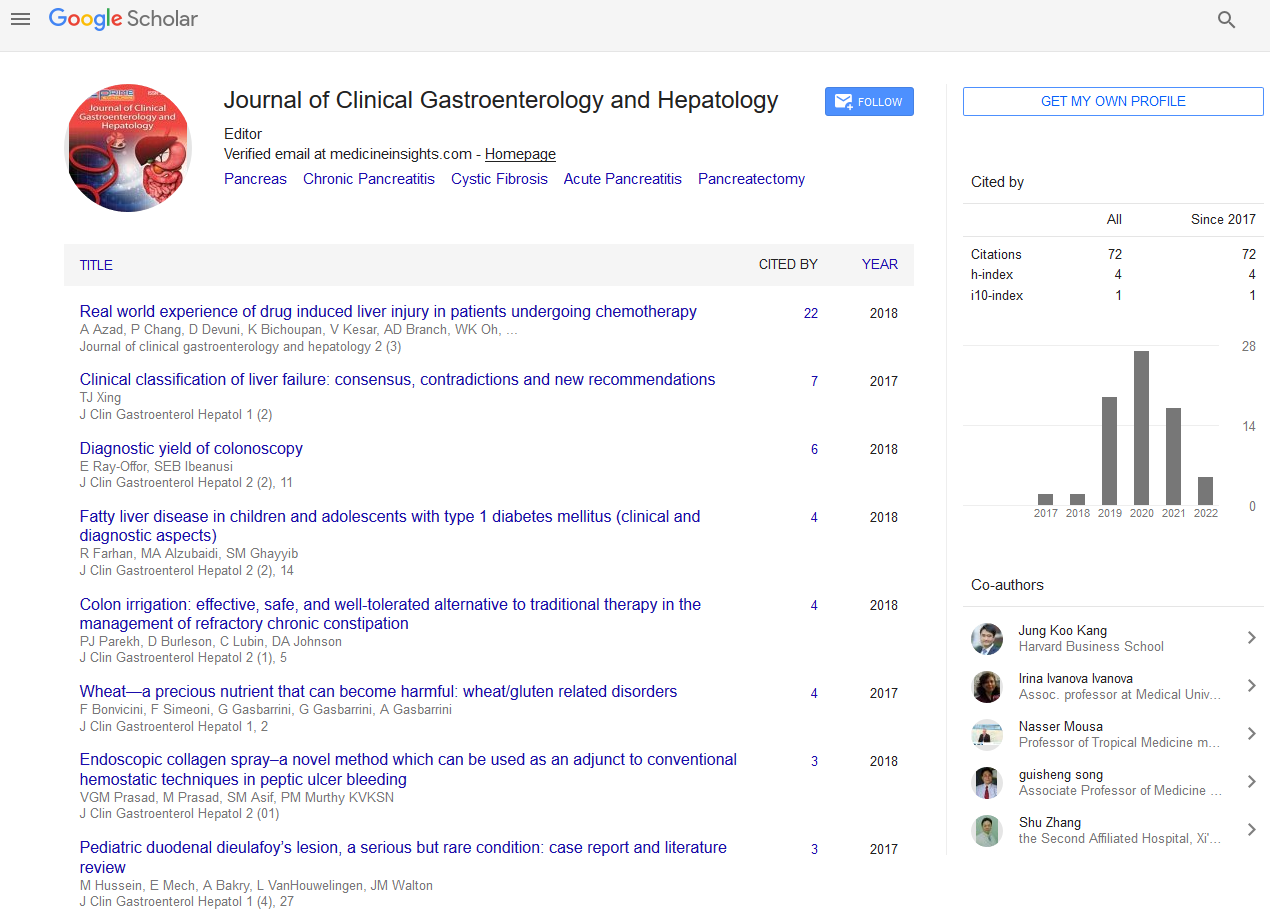Commentary - (2024) Volume 8, Issue 4
The Essential Role of Liver Functioning in Metabolism, Detoxification, and Overall Health: Insights from Modern Medicine
Morgan Henry*
Department of Hepatology, University of Medical Sciences, Canada
*Correspondence:
Morgan Henry,
Department of Hepatology, University of Medical Sciences,
Canada,
Email:
Received: 31-Jul-2024, Manuscript No. IPJCGH-24-21626;
Editor assigned: 02-Aug-2024, Pre QC No. IPJCGH-24-21626 (PQ);
Reviewed: 16-Aug-2024, QC No. IPJCGH-24-21626;
Revised: 21-Aug-2024, Manuscript No. IPJCGH-24-21626 (R);
Published:
28-Aug-2024, DOI: 10.36648/2575-7733.8.4.35
Description
The liver is one of the most vital organs in the human body,
performing a wide array of functions that are essential for
maintaining overall health and homeostasis. As the largest
internal organ, the liver plays a crucial role in metabolism,
detoxification, and the synthesis of various biochemical
necessary for digestion. Understanding how the liver functions
is fundamental to appreciating its significance in both normal
physiology and the pathology of various diseases. One of
the primary functions of the liver is its role in metabolism.
It is responsible for converting nutrients absorbed from the
digestive tract into essential compounds. The liver also plays
a role in protein metabolism, synthesizing various proteins,
including albumin, which maintains oncotic pressure and
transports substances throughout the body. Detoxification
is another crucial function of the liver. It filters blood coming
from the digestive tract before it is circulated to the rest of the
body, allowing it to process and neutralize potentially harmful
substances. The liver metabolizes drugs, alcohol, and toxins,
converting them into less harmful compounds that can be
excreted via urine or bile. This detoxification process is vital for
protecting the body from damage caused by these substances.
However, excessive alcohol consumption or exposure to toxic
substances can overwhelm the liver’s capacity to detoxify,
leading to liver damage or disease. The liver also plays a
significant role in the immune system. It produces proteins
involved in the immune response and helps in the removal of
pathogens from the bloodstream. Hepatic macrophages, known
as Kupffer cells, are responsible for engulfing and destroying
bacteria and dead cells, thus contributing to the body’s defence
mechanisms. This function underscores the importance of liver
health not only in metabolic processes but also in maintaining
immune integrity. Liver function tests are commonly used in
clinical settings to assess the health of the liver. These tests
measure various enzymes and proteins in the blood, providing
insights into the liver’s functional capacity. Elevated levels of
certain enzymes can indicate liver inflammation or damage,
while low levels of proteins like albumin can suggest impaired
liver function. Regular monitoring of liver function is crucial,
especially for individuals at risk of liver diseases such as
hepatitis, fatty liver disease, or cirrhosis. Maintaining liver
health is essential for overall well-being. Lifestyle factors,
including a balanced diet, regular exercise, and limited
alcohol consumption, play a significant role in preserving liver
function. Obesity and sedentary behaviour can lead to nonalcoholic
fatty liver disease, a condition that can progress to
more severe liver damage. Additionally, staying hydrated and
avoiding excessive intake of medications without medical
supervision can further protect liver health. In summary, the
liver is a multifunctional organ critical to various physiological
processes, including metabolism, detoxification, and immune
response. Its ability to regulate blood sugar, metabolize fats,
synthesize proteins, and filter toxins highlights its indispensable
role in maintaining health. Understanding liver functioning
not only helps in recognizing the signs of liver disease but
also emphasizes the importance of preventive measures to
safeguard this vital organ. As research continues to advance,
enhancing our knowledge about liver health will contribute
to better clinical practices and improved health outcomes for
individuals worldwide.
Acknowledgement
None.
Conflict Of Interest
The authors declare that they have no conflict of interest.
Citation: Henry M (2024) The Essential Role of Liver Functioning in Metabolism, Detoxification, and Overall Health: Insights from
Modern Medicine. J Clin Gastroenterol Hepatol. 8:35.
Copyright: © 2024 Henry M. This is an open-access article distributed under the terms of the Creative Commons Attribution
License, which permits unrestricted use, distribution, and reproduction in any medium, provided the original author and source
are credited.

